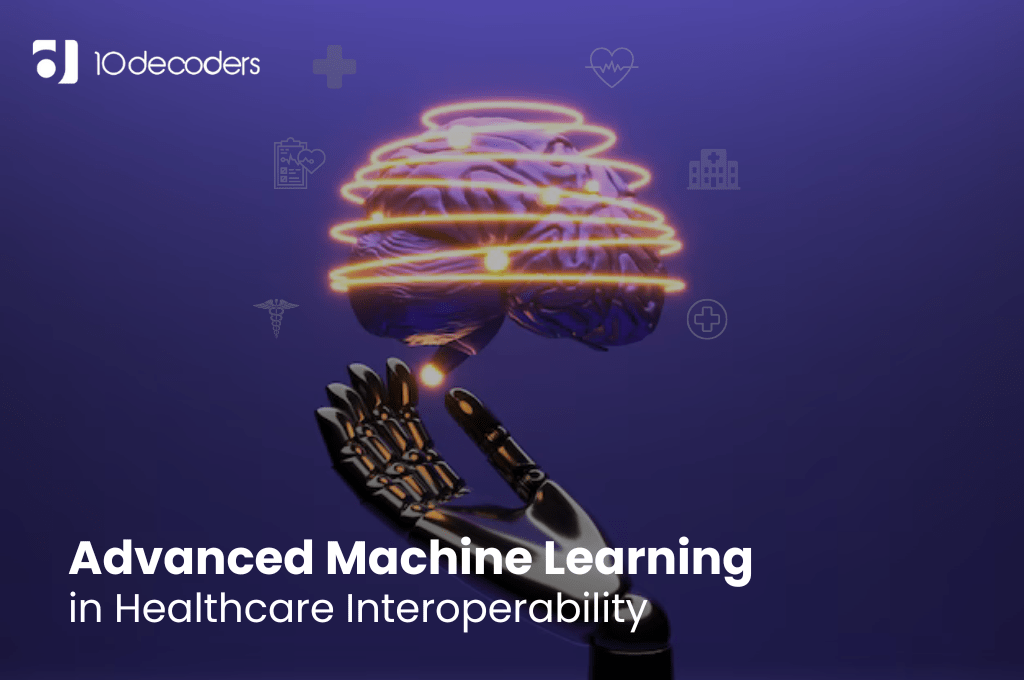Advanced Machine Learning in Healthcare Interoperability
The integration of advanced machine learning (ML) algorithms in healthcare interoperability is reshaping the landscape of medical data management. This blog explores the sophisticated technical methodologies and innovations that ML brings to interoperability in healthcare, emphasizing its transformative impact.
Unlocking Complex Data Patterns with Advanced ML
At the core of healthcare interoperability lies the challenge of deciphering complex data patterns from diverse medical systems. Advanced ML algorithms, particularly those utilizing deep learning, are adept at unraveling these complexities. They analyze and interpret intricate data patterns, facilitating accurate data integration across various healthcare platforms.
Enhancing Interoperability with Machine Learning
Advanced Data Encoding Techniques: ML algorithms employ complex encoding techniques to transform healthcare data into machine-readable formats, enabling seamless data exchange between disparate systems.
Predictive Modeling in Patient Care: Utilizing sophisticated predictive models, ML algorithms can forecast patient outcomes based on diverse datasets, leading to proactive healthcare interventions.
Complex Network Analysis: ML algorithms are instrumental in analyzing complex networks within healthcare systems, identifying key nodes and connections that impact data flow and interoperability.
Technical Challenges and Solutions
Implementing advanced ML in healthcare interoperability involves navigating several technical challenges:
Algorithmic Complexity: Designing ML algorithms that can handle the intricate nature of healthcare data requires deep technical expertise.
Data Standardization: Standardizing data from multiple sources to a format understandable by ML algorithms is a significant technical hurdle.
Real-time Processing: Developing ML algorithms capable of processing and analyzing data in real-time is crucial for effective interoperability in healthcare.
Leveraging ML for Enhanced Clinical Decision Support
Advanced ML algorithms are revolutionizing clinical decision support systems (CDSS). By integrating with interoperable healthcare platforms, these algorithms can analyze a patient’s health data across multiple sources, offering clinicians comprehensive insights. For instance, ML-driven CDSS can suggest potential diagnoses or recommend personalized treatment plans by analyzing past medical histories, current symptoms, and similar patient outcomes. This holistic approach not only improves the accuracy of clinical decisions but also significantly reduces the time clinicians spend analyzing complex data, leading to more efficient patient care.
ML-Driven Anomaly Detection in Healthcare Data
Anomaly detection is another area where advanced ML algorithms excel in healthcare interoperability. These algorithms can swiftly identify irregularities or abnormalities in vast datasets, which is crucial for early detection of potential health issues or system errors. For example, an ML algorithm could detect unusual patterns in a patient’s laboratory results that might indicate a misdiagnosis or an emerging health issue, prompting timely medical intervention. This capability is particularly valuable in large healthcare systems where manually monitoring all patient data is impractical.
Advancements in Secure Data Exchange with ML
Secure data exchange is paramount in healthcare interoperability. Advanced ML algorithms are being developed to enhance the security and privacy of data exchanges. These algorithms use sophisticated encryption techniques and anomaly detection to protect sensitive patient information during transfer between different systems. For example, ML-based security protocols can detect and mitigate potential cyber threats in real time, ensuring the integrity of patient data. This focus on security is vital for maintaining patient trust and complying with stringent healthcare regulations like HIPAA.
The Future of ML in Healthcare Data Management
Emerging areas include
Autonomous Data Correction: ML algorithms will increasingly be capable of autonomously identifying and correcting data inconsistencies across healthcare systems.
Advanced Data Privacy Techniques: The development of ML algorithms that can ensure data privacy while maintaining interoperability is a key area of future growth.
The application of advanced machine learning algorithms in healthcare interoperability is a technical feat that promises to revolutionize how medical data is shared and utilized. By addressing the complex challenges of data integration and management, these algorithms are paving the way for a more connected and efficient healthcare system. The ongoing advancements in ML will continue to play a critical role in the evolution of healthcare interoperability.



